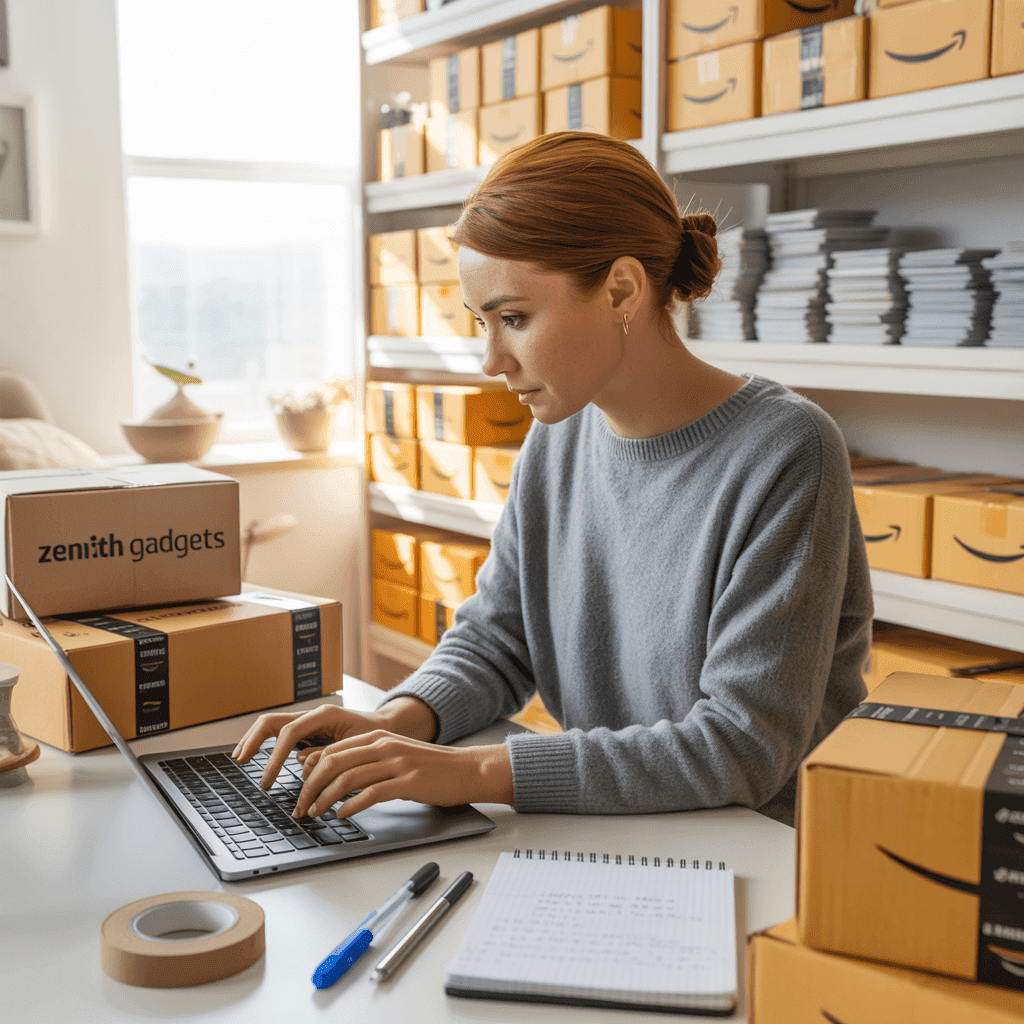You can build your brand, grow your business, and increase your sales on Amazon without ever managing inventory. It might sound surprising, but it’s true. Amazon private label lets you launch your own brand by simply changing the packaging of an existing product.
But before you get started, here’s something to keep in mind: without the right strategy, your profits can slip through the cracks. That’s why thousands of sellers use Manage Amazon’s product packaging design services to launch and scale successfully.
This blog is packed with everything you need to start your private label journey on Amazon the right way.
What Is Amazon Private Label?
Amazon private label means you create your own branded version of an existing product and sell it under your name. You don’t need to invent something new. Instead, you take a product that’s already selling well, improve its packaging, tweak the design, and make it your own.
Private labeling Amazon products gives you more control over pricing, branding, customer loyalty, and product direction. It also helps avoid the constant pricing wars that come with reselling other people’s items.
This strategy works especially well with Amazon FBA (Fulfillment by Amazon), making it even easier to launch and grow. That’s where the phrase Amazon FBA private label comes from.
What Are the 4 Types of Private Labels?
Private label isn’t a one-size-fits-all approach. There are different types based on how much control you want and how you position your brand.
1. Generic Private Label
These are basic, no-name products sold at low prices. They have minimal branding and simple packaging. Think of store-brand batteries or basic cleaning supplies. Sellers using this approach focus on volume, not brand recognition.
2. Copycat Private Label
This strategy mirrors popular products but under your brand. It looks similar, functions the same, but costs less. You’ll often find these in trending categories like fitness gear or phone accessories. While risky if done poorly, it works if your version adds value.
3. Premium Private Label
Here, sellers aim for quality and presentation. From packaging to performance, everything is built to compete with top brands. This type of private labeling is great for niches like skincare, home decor, or wellness. Margins are higher, and customers expect more.
4. Exclusive Private Label
This is the full custom route. You create a unique product with special features, designs, or ingredients. It takes more time and budget, but gives you complete control. If you want to build a long-term brand, this is the path to take.
Why Is Private Labeling on Amazon So Popular?
The short answer: control and profit.
- You own the brand
- You set the price
- You control your marketing
- You build customer loyalty
- You protect yourself from copycats
In 2025, private label FBA sellers dominate many Amazon categories. According to Marketplace Pulse, over 67% of top Amazon sellers use private label strategies.
And here’s the thing—Amazon rewards brand owners. With Brand Registry, A+ Content, and ad placements, Amazon private label products often look more professional and trustworthy.
How to Find Private Label Product Ideas That Actually Sell
Private labeling only works if your product sells. That starts with good research. Use a mix of tools and instinct.
- Look for gaps in current listings (bad reviews, missing features)
- Study Amazon’s Best Sellers list
- Check Google Trends and social media buzz
- Use tools like Helium 10 or Jungle Scout
You’re looking for simple products that have:
- Consistent demand
- Low competition or weak branding
- Room for small improvements
These could be items like silicone baking mats, pet grooming gloves, resistance bands, or even minimalist wallets. The goal is to identify products where you can add value without reinventing the wheel.
Want to sell faster? Great Product Packaging Design Services can make your listing stand out with visual branding customers remember.
Is Private Label Profitable?
Yes, if done right. Margins on private label Amazon FBA products are often 20% to 50% higher than wholesale or dropshipping. You also reduce your long-term cost per sale since you’re building a brand, not just a one-off transaction.
Many sellers who switched to private label have doubled their profits in 6 to 12 months. But it’s not magic. It takes planning, patience, and smart decisions.
How to Source Products for Private Label on Amazon
You found your product. Now what?
Sourcing is where many sellers mess up. Here’s a simple path:
- Find a supplier on Alibaba, IndiaMart, or even U.S.-based manufacturers
- Negotiate prices, customization options, and MOQs
- Order samples and test for quality
- Add your logo and packaging design
- Start small with a test order (100 to 300 units)
It’s also smart to have backup suppliers early on. Delays and stockouts kill momentum, especially when your listing gains traction.
How to Sell Private Label Products on Amazon (Step-by-Step)
- Create your Amazon seller account (individual or professional)
- Enroll in Brand Registry once your trademark is filed
- Set up your product listing with great images, keywords, and benefits
- Send inventory to Amazon FBA warehouses
- Launch your product using PPC, giveaways, influencer posts, or email lists
If you skip the launch phase, your listing will disappear into the void. Make sure your first 10–20 reviews come in fast and honest.
Also, stay aware of Amazon private label requirements, especially if you’re dealing with food, supplements, or products for kids. Some categories need lab testing or compliance checks.
Pro Tips to Grow Your Private Label Amazon Business
- Focus on brand, not just products. One strong brand with 3–4 products is better than 10 random items.
- Use tools to track keywords, reviews, and sales
- Run A/B tests on titles, images, and pricing
- Optimize packaging so customers remember and recommend
- Keep an eye on common mistakes sellers make (like pricing too low or poor customer service)
Private label FBA gives you power, but it also comes with responsibility. You can’t ignore reviews or cut corners on product quality.
Is Private Label the Same as Dropshipping?
No, they’re not the same. Here’s a comparison to clear things up:
| Feature | Private Label FBA | Dropshipping |
| Inventory Ownership | You buy and store inventory | Supplier owns and ships inventory |
| Branding | You sell under your own brand | You resell someone else’s product |
| Control Over Quality | Full control (you approve samples, packaging) | Limited or no control |
| Upfront Cost | Moderate to high (for production, packaging) | Low (you only pay after making a sale) |
| Profit Margins | Higher margins due to branding | Lower margins due to shared control |
| Risk Level | Medium (inventory risk, but higher returns) | Low (no inventory, but harder to scale) |
| Long-Term Potential | High (brand building, customer loyalty) | Low (no brand ownership) |
Private label focuses on control and profit. Dropshipping is about speed and ease. Choose based on your business goals.
Common Mistakes to Avoid in Private Labeling
- Choosing a saturated niche with no real value add
- Trusting the first supplier blindly
- Skipping proper listing optimization
- Selling without a real launch plan
- Ignoring packaging or unboxing experience
These mistakes hurt your brand long-term and can even lead to account suspensions. Stay proactive and stay compliant.
Private Labeling and Amazon FBA: The Perfect Pair
Amazon private label FBA makes everything easier. You store your inventory in Amazon’s warehouses, they handle packing, shipping, and customer service.
That means you can focus on what really matters:
- Growing your brand
- Expanding to new products
- Creating strong listings
- Improving customer experience
And once you’ve built one product, you can expand into multiple eCommerce niches with confidence.
Is Private Label Legal?
Yes, private labeling is completely legal. In fact, it’s a common business practice across retail and eCommerce. Major store chains like Walmart, Target, and Costco all have their own private label lines. On Amazon, it’s the same idea, just with more sellers doing it independently.
That said, legal issues can arise if you copy another brand’s trademark, design, or packaging. You must create your own branding and avoid infringing on other companies’ intellectual property. Always check that your supplier isn’t selling you counterfeit or copyrighted designs.
To stay safe, it’s smart to trademark your brand and join Amazon Brand Registry. This gives you more protection against copycats and helps with listing control. If you’re unsure, talk to an attorney who knows eCommerce law. Staying compliant helps protect you from Amazon account suspensions or legal takedowns.
FAQs About Amazon Private Label
How much money do you need for an Amazon private label?
You need between $2,790 and $3,940 to start your Amazon private label journey. This covers essentials like inventory, Amazon fees, tools, and some optional upgrades like better packaging and product photos. I began mine with a modest budget and focused on where the money actually made a difference.
What is the difference between Amazon wholesale and Amazon private label?
Amazon wholesale is where you resell existing branded products in bulk. Private label is where you build your own brand and control everything from design to customer messaging. If you’re asking me which builds long-term value, private label wins every time.
Is Amazon private label profitable?
Yes, private label on Amazon can be very profitable. You eliminate middlemen, source directly from suppliers, and keep more profit per sale. I’ve seen my margins jump significantly once I switched from reselling to creating my own brand.
Do I need an LLC to sell private label products on Amazon?
No, you don’t need an LLC to start selling your own branded products on Amazon. You can start as an individual. I did the same and only formed an LLC once my sales picked up and I knew I was going to stick with it.
What is private labeling on Amazon?
Private labeling means taking an existing product, branding it with your name and packaging, and selling it as your own. You don’t invent the product, but you make it feel unique. That’s exactly how I started and built my brand.
Final Thoughts:
Private labeling is worth it if you want real, long-term results on Amazon and you’re not looking for shortcuts. It’s not a get-rich-quick scheme, but it does offer control, solid margins, and the ability to build a real brand that people trust. Reselling can only take you so far, while owning your own label gives you leverage that lasts.
If you’re ready to grow your store the smart way, start small, move intentionally, and focus on what works. And if you don’t want to manage everything on your own, Manage Amazon can handle your product research, setup, listings, and more. So you get more time and fewer headaches while scaling your brand right.


